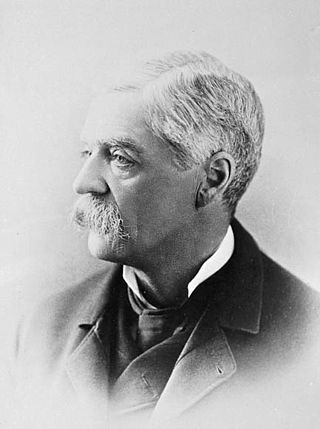
Lists of historical members of the Privy Council for Canada cover former members of the Privy Council for Canada, which provides advice to the monarch of Canada on state and constitutional affairs. The lists are organized by period.

Lists of historical members of the Privy Council for Canada cover former members of the Privy Council for Canada, which provides advice to the monarch of Canada on state and constitutional affairs. The lists are organized by period.
The following outline is provided as an overview of and introduction to law:

His Majesty's Most Honourable Privy Council is a formal body of advisers to the sovereign of the United Kingdom. Its members, known as privy counsellors, are mainly senior politicians who are current or former members of either the House of Commons or the House of Lords.

The Lord President of the Council is the presiding officer of the Privy Council of the United Kingdom and the fourth of the Great Officers of State, ranking below the Lord High Treasurer but above the Lord Keeper of the Privy Seal. The Lord President usually attends and is responsible for chairing the meetings of the Privy Council, presenting business for the approval of the Sovereign. In the modern era, the incumbent is by convention always a member of one of the houses of Parliament, and the office is normally a Cabinet position.

The Right Honourable is an honorific style traditionally applied to certain persons and collective bodies in the United Kingdom, the former British Empire and the Commonwealth of Nations. The term is predominantly used today as a style associated with the holding of certain senior public offices in the United Kingdom, Canada, New Zealand, and, to a lesser extent, Australia.
A sinecure is an office, carrying a salary or otherwise generating income, that requires or involves little or no responsibility, labour, or active service. The term originated in the medieval church, where it signified a post without any responsibility for the "cure [care] of souls", the regular liturgical and pastoral functions of a cleric, but came to be applied to any post, secular or ecclesiastical, that involved little or no actual work. Sinecures have historically provided a potent tool for governments or monarchs to distribute patronage, while recipients are able to store up titles and easy salaries.

Newton Wesley Rowell, was a Canadian lawyer, politician, judge, and lay leader in the Methodist Church. Rowell led the Ontario Liberal Party from 1911 to 1917 and put forward a platform advocating temperance. Rowell's Liberals failed to oppose the Whitney government's passage of Regulation 17 which restricted the teaching of the French language in schools and alienated the province's French-Canadian minority.

The King's Privy Council for Canada, sometimes called His Majesty's Privy Council for Canada or simply the Privy Council (PC), is the full group of personal consultants to the monarch of Canada on state and constitutional affairs. Practically, the tenets of responsible government require the sovereign or his viceroy, the governor general of Canada, to almost always follow only that advice tendered by the Cabinet: a committee within the Privy Council composed usually of elected members of Parliament. Those summoned to the KPC are appointed for life by the governor general on the advice of the prime minister of Canada, meaning that the group is composed predominantly of former Cabinet ministers, with some others having been inducted as an honorary gesture. Those in the council are accorded the use of an honorific style and post-nominal letters, as well as various signifiers of precedence.

John Whitney Pickersgill, was a Canadian civil servant and politician. He was born in Ontario, but was raised in Manitoba. He was Clerk of the Privy Council in the early 1950s. He was first elected to federal parliament in 1953, representing a Newfoundland electoral district and serving in Prime Minister Louis St. Laurent's cabinet. In the mid-1960s, he served again in cabinet, this time under Prime Minister Lester B. Pearson. Pickersgill resigned from Parliament in 1967 to become the president of the Canadian Transport Commission. He was awarded the highest level of the Order of Canada in 1970. He wrote several books on Canadian history. He died in 1997 in Ottawa.

Sir Auguste-Réal Angers was a Canadian judge and parliamentarian, holding seats both as a member of the House of Commons of Canada, and as a Senator. He was born in 1837 probably in Quebec City and died in Westmount, Quebec, in 1919.

The 7th Canadian Parliament was in session from April 29, 1891, until April 24, 1896. The membership was set by the 1891 federal election on March 5, 1891. It was dissolved prior to the 1896 election.

The 11th Canadian Parliament was in session from January 20, 1909, until July 29, 1911. The membership was set by the 1908 federal election on October 26, 1908, and it changed only somewhat due to resignations and by-elections until it was dissolved prior to the 1911 election.

The 12th Canadian Parliament was in session from 15 November 1911 until 6 October 1917. The membership was set by the 1911 federal election on 21 September 1911, and it changed only somewhat due to resignations and by-elections until it was dissolved prior to the 1917 election. At 5 years, 10 months and 22 days, it was the longest parliament in Canadian history. The parliament was extended beyond the normal limit of five years by the British North America Act, 1916 as a result of World War I.
The Privy Council of England, also known as HisMajesty's Most Honourable Privy Council, was a body of advisers to the sovereign of the Kingdom of England. Its members were often senior members of the House of Lords and the House of Commons, together with leading churchmen, judges, diplomats and military leaders.
Lucien Turcotte Pacaud was a Canadian lawyer and political figure. He represented Mégantic in the House of Commons of Canada from 1911 to 1922 as a Liberal member.